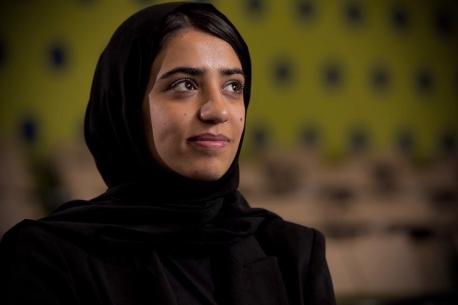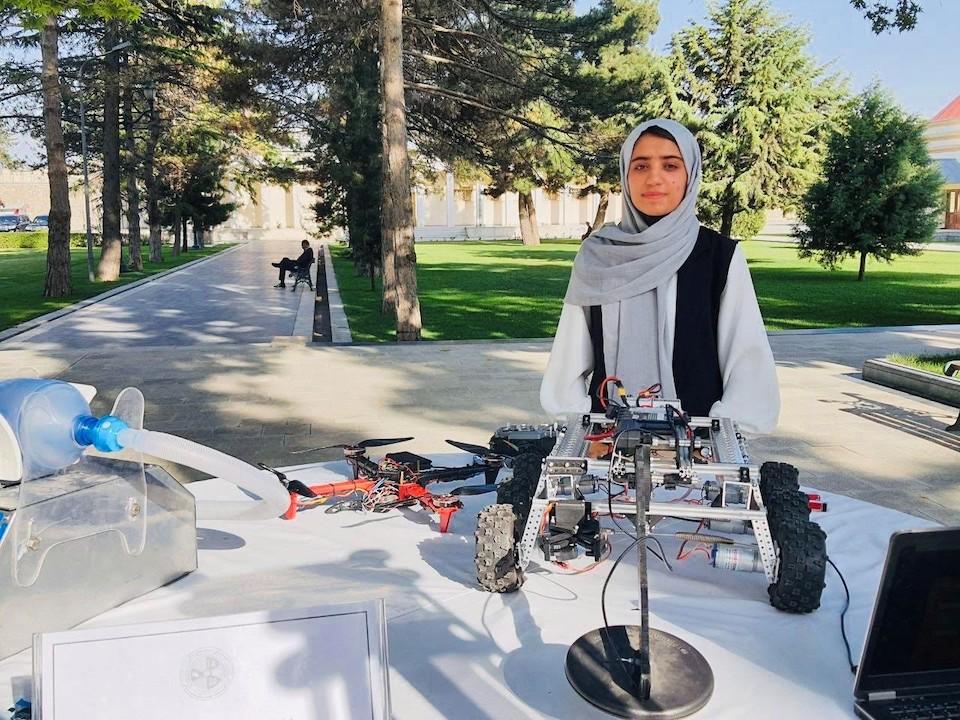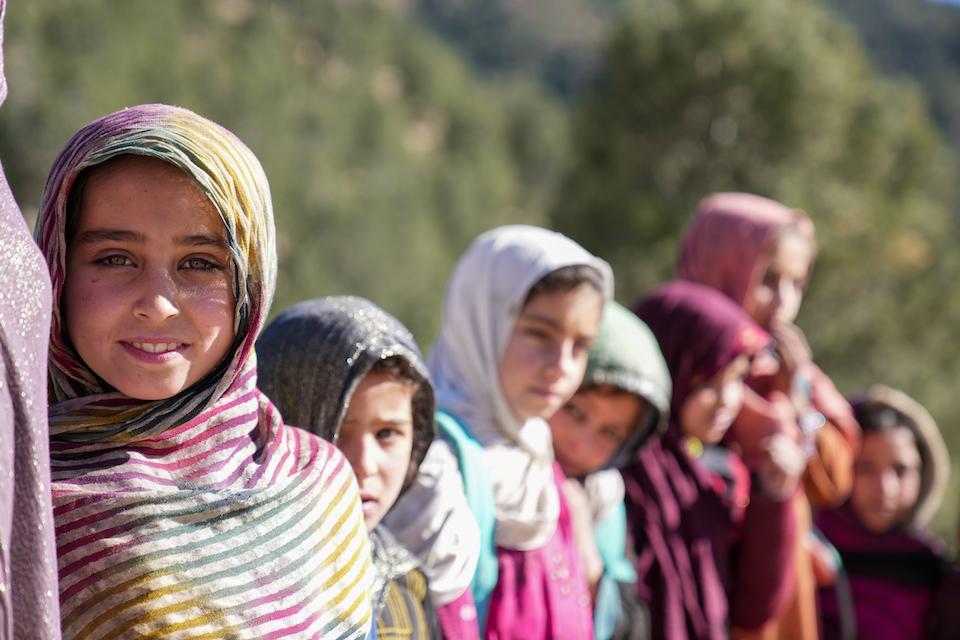
Fighting for Girls' Education in Afghanistan
Somaya Faruqi left Afghanistan two years ago, at age 19. Today she is seizing the opportunity to advocate for girls’ education on a global stage — and sharing messages the world needs to hear.
Two years too long: girls' education still banned in Afghanistan
Two years ago, 19-year-old Somaya Faruqi found herself in the middle of Kabul as the Taliban took power in Afghanistan.
She had gone from Herat to the capital city with nine other girls for a robotics competition. She never imagined it would mark the beginning of a journey that would take her away from her beloved country and change her life forever.
Somaya recalls the scene as the group made their way to the Kabul airport along with thousands of others. There were armed men patrolling the streets. Lost children crying for their parents. Mothers hysterically searching for lost children. Corpses lying on the ground among the injured.

As captain of the all-girls Afghan Robotics Team — nicknamed the Afghan Dreamers — Somaya had been regularly featured in Afghan news, the team a shining example of girls excelling in science, technology, engineering and math (STEM). Once active in their society, the teammates were suddenly no longer safe in Afghanistan. They had to flee.
The first two months in Doha, Qatar, were difficult. "Most of us were feeling very depressed," Somaya says. "Every time we started to talk about Afghanistan, we would cry. It was difficult to talk about what we had witnessed in those final days."
On Sept. 18, 2021, within weeks of taking power, the de facto authorities imposed a ban on girls attending secondary school. Despite their promises to reopen school to all girls within a few months, the ban has been strictly maintained and even expanded since.
Somaya completed 12th grade in Qatar, applied to college and received a scholarship from the Qatar Fund for Development to pursue engineering studies in the United States.
Sometimes, I feel guilty that I can study when my old classmates cannot even go to school in Afghanistan. And some have been forced to marry at a young age.
Ever since she was a child, becoming an engineer was all she ever wanted. She just never imagined she would have to leave her homeland to do it.
“What I had dreamt of as a child compared to my reality now is very different," Somaya says. "I’m studying what I always wanted to study, but I never imagined I would have to flee my country to do so. Sometimes, I feel guilty that I can study when my old classmates cannot even go to school in Afghanistan. And some have been forced to marry at a young age."
Now 21, and pursuing her engineering degree in the United States, Somaya says she cannot believe her friends in Afghanistan are still being denied their right to an education.
The situation for girls in the country is beyond comprehension, she says. “Girls have been banned from public spaces: schools, gyms, parks. There is nothing allowed for them to do, just to stay at home."
The toll on girls' mental health is worrisome. Depression is widespread, and the suicide rate among girls has gone up. "It is tragic."
Somaya has taken on the role of global advocate to help spread awareness of what is happening to girls in Afghanistan and their urgent need for more support. More online mental health resources could help girls and women who are trapped at home cope with the hardship they are experiencing and help them recover and sustain hope, she says.
“The situation is particularly difficult for girls forced into marriage," Somaya says. "There needs to be more efforts and campaigns to raise awareness and change the cultural norms that push families to marry their girls.”
Somaya is also calling for more resources to support online education and community-based education initiatives, including programs supported by Education Cannot Wait, the UN’s global fund for education in emergencies that is hosted by UNICEF.
Education Cannot Wait — supporting community-based education in remote areas of Afghanistan since 2017
ECW has been supporting community-based education across Afghanistan since 2017. Working with UNICEF and local partners, and with the support of local communities, ECW reaches 250,000 children and adolescents across some of the most remote and underserved areas of the country, half of whom are girls.
Nominated to be an ECW Global Champion in February, Somaya says she is determined to continue using her platform to speak for those left furthest behind in her home country. In collaboration with Somaya, ECW just launched a monthlong social media campaign — #AfghanGirlsVoices — to elevate to the global stage the voices of Afghan girls deprived of their basic right to education and learning.
Somaya keeps in contact with girls in Afghanistan and hears their stories and reads their heartbreaking texts. Before stepping up to the podium at UN events, she reaches out to Afghan girls to ask what they want the world to know. She asks them about their struggles, their hopes, their dreams, so she can share them with a global audience.

A global champion to amplify the voices of Afghan girls
What keeps her going on the hardest days, she says, is the resilience of Afghan girls living in an impossible situation but holding on to hope that they will return to school one day. That and all the Afghan women who take to the streets, risking their lives, to protest in defense of their rights.
Somaya recalls reading about the first all-women mission to Afghanistan after the takeover, led by ECW Executive Director Yasmine Sherif, to advocate for girls’ right to education. She says hearing of this fearlessness and passion inspired her and gave her motivation to keep going.
When asked what she hopes for in the coming months and year, she doesn’t hesitate.
“I hope this is the last time we are forced to mark this terrible ban on girls’ education. I hope we will soon be celebrating the return to school of all girls in Afghanistan. I hope we will be celebrating their freedom rather than marking their oppression. So much can change for the better if we all take action together now, in solidarity with every Afghan girl.”
UNICEF is on the ground in Afghanistan working in communities to meet urgent needs of vulnerable children and to protect their rights. Learn more about UNICEF's work in Afghanistan.
Support UNICEF's mission for the children of Afghanistan. Donate today.

